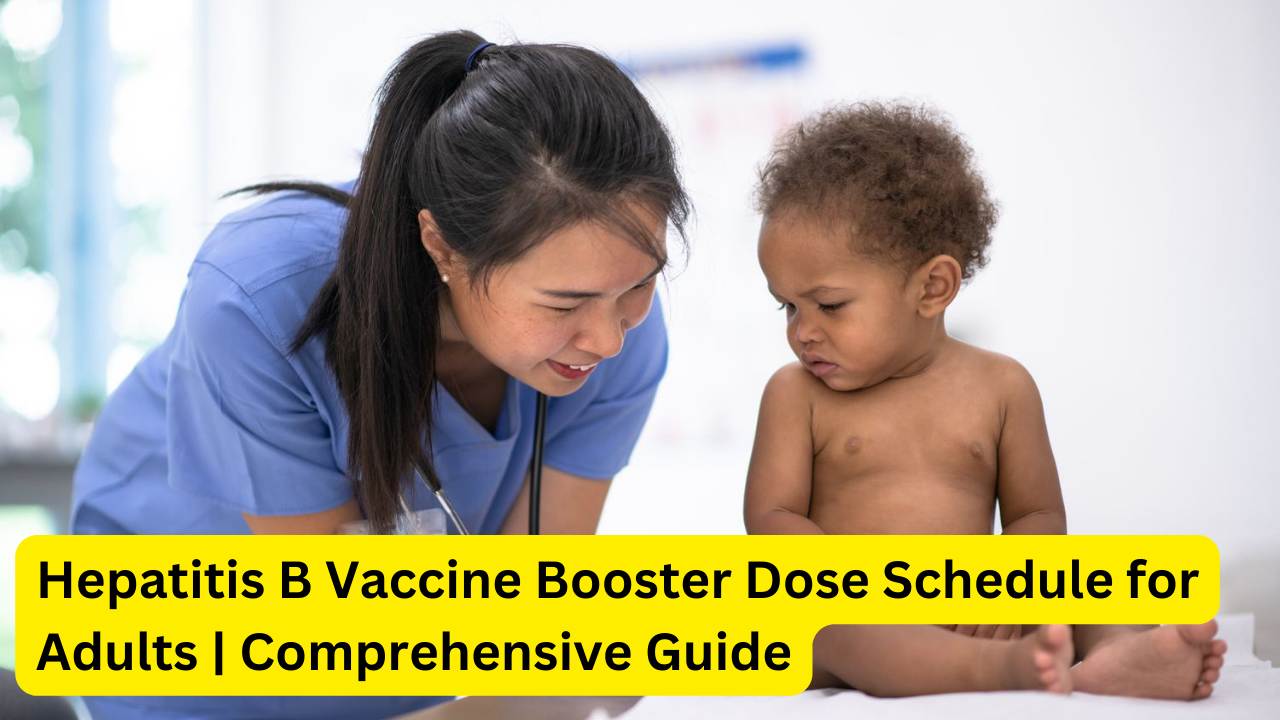
Introduction
Hepatitis B Vaccine Booster Dose Schedule for Adults. Hepatitis B is a severe viral infection that affects the liver, causing inflammation, cirrhosis, and potentially leading to liver cancer. Among the five primary types of hepatitis viruses—A, B, C, D, and E—hepatitis B poses a significant global health threat due to its high burden of illness and mortality. Vaccination is the most effective measure to prevent hepatitis B, and understanding the hepatitis B vaccine booster dose schedule for adults is crucial for maintaining long-term immunity.
Understanding Hepatitis B
Hepatitis B is caused by the hepatitis B virus (HBV), which is transmitted through contact with infectious body fluids, such as blood, semen, and vaginal secretions. Common modes of transmission include unprotected sexual contact, sharing needles, and from mother to child during childbirth. Chronic hepatitis B infection can lead to severe liver damage, cirrhosis, and hepatocellular carcinoma.
Importance of the Hepatitis B Vaccine
The hepatitis B vaccine is highly effective in preventing HBV infection. The vaccine stimulates the immune system to produce antibodies against HBV, providing immunity without causing the disease. Vaccination has significantly reduced the incidence of hepatitis B worldwide, particularly in countries with high vaccination coverage.
Hepatitis B Vaccine Schedule for Adults
Primary Vaccination Series
The primary vaccination series for adults typically involves three doses of the hepatitis B vaccine:
- First Dose: Administered at any time (0 month).
- Second Dose: Given one month after the first dose (1 month).
- Third Dose: Administered six months after the first dose (6 months).
This schedule ensures the development of long-lasting immunity. In some cases, a four-dose schedule may be recommended, especially for individuals with compromised immune systems or those receiving hemodialysis.
Booster Dose Recommendations
For most adults with a healthy immune system, the primary vaccination series provides long-term protection. However, certain individuals may require a hepatitis B vaccine booster dose to maintain adequate immunity levels. Booster doses are generally recommended for:
- Healthcare Workers: Due to their increased risk of exposure to HBV.
- Individuals with Chronic Kidney Disease: Particularly those undergoing hemodialysis.
- Immunocompromised Individuals: Including those with HIV infection.
- Travelers to High HBV Prevalence Areas: Depending on the duration and nature of travel.
Booster Dose Schedule
The need for booster doses and the specific schedule varies based on individual risk factors and immune status. Generally, a booster dose is recommended if:
- Anti-HBs Titers: Fall below 10 mIU/mL.
- Five to Ten Years: After the primary vaccination series for high-risk individuals.
Monitoring Immunity Levels
Regular monitoring of anti-HBs titers is essential for individuals at higher risk of HBV exposure. Anti-HBs titers measure the level of hepatitis B surface antibodies in the blood, indicating the presence of immunity. Healthcare providers can determine the need for a booster dose based on these levels.
Benefits of the Hepatitis B Vaccine
Prevention of Severe Liver Disease
The primary benefit of the hepatitis B vaccine is the prevention of severe liver diseases, including cirrhosis and liver cancer. By maintaining immunity through the recommended vaccination schedule and booster doses, individuals can significantly reduce their risk of chronic HBV infection and its complications.
Public Health Impact
Widespread vaccination has led to a substantial decline in hepatitis B cases globally. Herd immunity, achieved through high vaccination coverage, protects those who are unvaccinated or have weaker immune responses. This collective protection is crucial in controlling the spread of HBV.
Cost-Effectiveness
Preventing HBV infection through vaccination is cost-effective compared to the long-term costs associated with treating chronic hepatitis B and its complications. The economic burden of liver diseases can be significantly reduced with effective vaccination programs.
Common Side Effects and Safety
The hepatitis B vaccine is generally safe and well-tolerated. Common side effects are mild and may include:
- Pain at the Injection Site
- Fatigue
- Headache
- Fever
Severe allergic reactions are rare. It is important to discuss any concerns with healthcare providers before receiving the vaccine.
Conclusion
Understanding the hepatitis B vaccine booster dose schedule for adults is essential for maintaining long-term immunity and preventing severe liver diseases. By adhering to the recommended vaccination and booster schedules, individuals can protect themselves and contribute to the broader public health goal of eliminating hepatitis B as a global health threat.
For more comprehensive information about hepatitis B vaccination and booster doses, consult healthcare providers and stay informed about the latest guidelines and recommendations.




